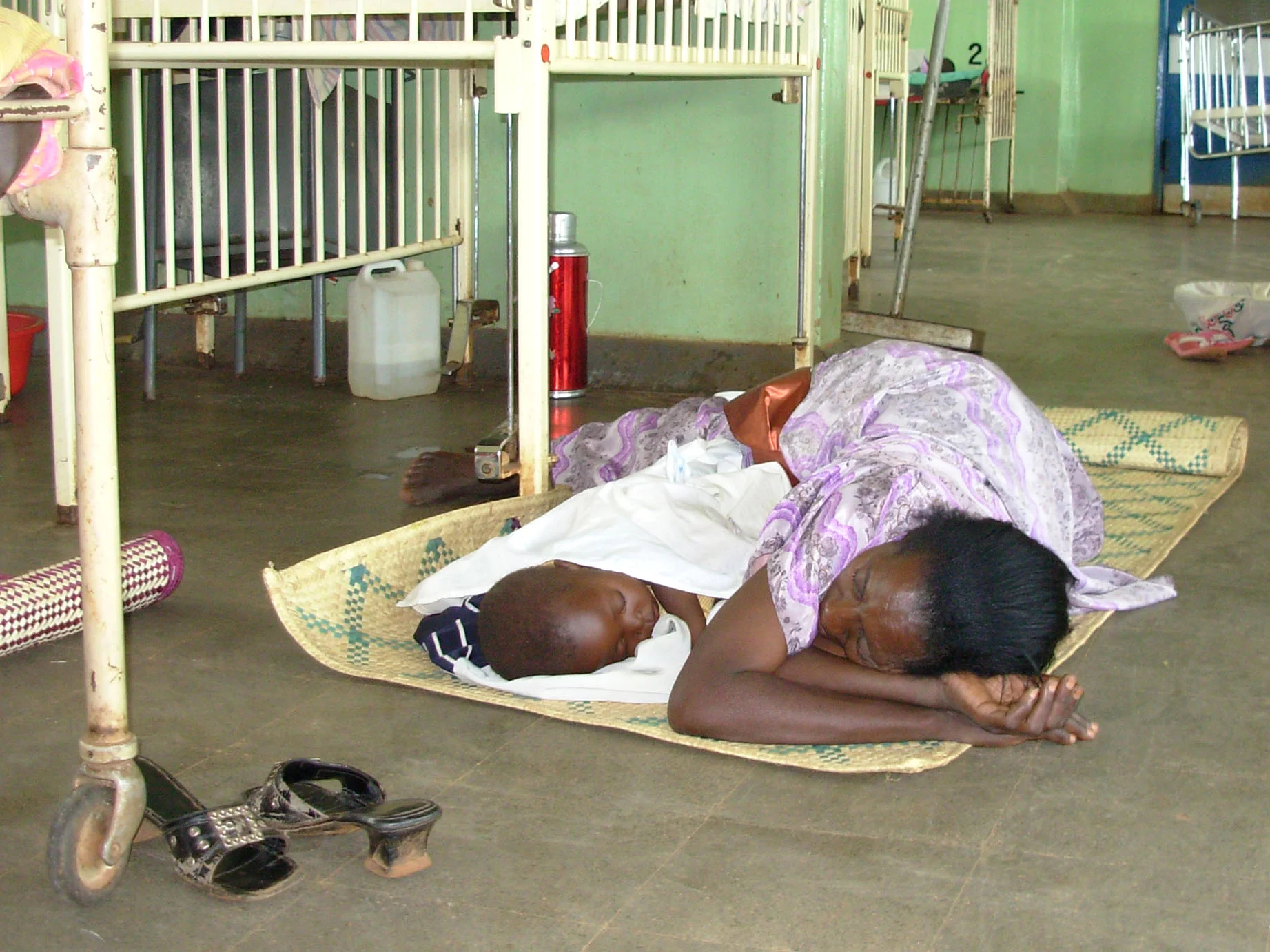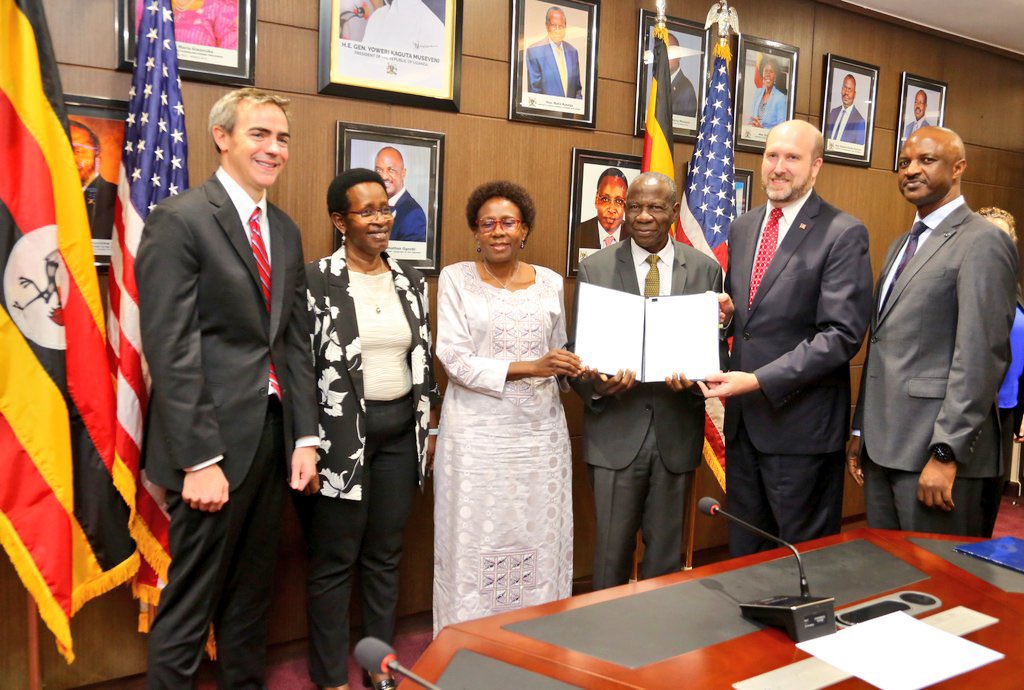Uganda can no longer afford to delay the National Health Insurance Scheme

A mother lying on a bare floor at Kayunga pediatric ward, Uganda. Photo: Vincent Mayanja/IRIN
There’s a common adage often heard in Ugandan social circles: “An average Ugandan is one medical bill away from poverty.” It may sound like a cliché, but it reflects a painful reality we witness daily. The COVID-19 pandemic stripped away the illusion of preparedness, revealing just how fragile our healthcare system truly is. Families were forced to sell off their most basic assets to access treatment. Others, unable to afford care, were left to suffer in silence, neglected in hospital wards simply because they could not pay.
We have all seen the heartbreaking posts on social media urgent appeals for financial assistance to cover medical procedures, surgeries, and hospital bills. In these moments of desperation, we are left wondering: Where is the promised right to health?
It should be a right, not a privilege
Target 3.8 of Sustainable Development Goal (SDG) 3 under the 2030 Agenda calls for countries to ensure Universal Health Coverage (UHC), including financial risk protection and access to quality, essential healthcare services and affordable medicines for all.
But Uganda stands far from this goal. The country’s out-of-pocket health expenditure currently stands at 34.1%, the highest in East Africa far above the World Health Organization’s recommended threshold of 15%. This means millions of Ugandans are one illness away from financial ruin. These health costs aren’t just inconvenient; they are catastrophic, pulling families into a cycle of debt and poverty.
The elusive promise of health insurance
For years, the National Health Insurance Scheme (NHIS) has been touted as a solution to this crisis. A potential lifeline for citizens drowning in medical costs, it remains stalled in limbo. Ugandans continue to struggle, many languishing on cold hospital floors, as political leaders offer more promises than progress.
Originally introduced in 2019 and passed by Parliament in 2021, the NHIS Bill was later withdrawn by the government to address stakeholder concerns, including affordability. While the intention may have been to improve the bill, the result has been prolonged suffering for ordinary Ugandans. Today, Uganda and South Sudan remain the only East African countries without a national health insurance scheme.
With the cost of living rising sharply, access to healthcare is fast becoming a privilege, not a right. And with a looming UGX 604 billion funding gap in the health sector due to expected cuts in donor aid, the urgency to revive and pass the NHIS Bill has never been greater.
Social contract
Uganda must embrace a new social contract, one that values the health of its citizens as a cornerstone of national development. A well-structured NHIS can help bridge the healthcare financing gap through pooled resources, offering both sustainability and equity. But this must be done right.
The passage of the NHIS alone is not enough. For it to succeed, Uganda needs deep institutional reforms. Affordability must be genuinely addressed to ensure all citizens especially the poor can participate. Transparency and accountability mechanisms must be ironclad to prevent corruption and build public trust. Most importantly, political interference, which has too often undermined critical policy implementation, must be minimized to ensure the scheme’s success.
Turning the policy into practice
The Ministry of Health’s proposed partnership with Village Health Teams (VHTs) to assess individuals’ ability to contribute is a promising step. If executed well, this grassroots approach could lay the foundation for an inclusive, needs-based system. However, public understanding of health insurance remains low. Misconceptions abound, including the false belief that paying into the scheme will bring immediate improvements. Therefore, a comprehensive public awareness campaign is essential to build confidence and encourage participation.
A functioning NHIS would dramatically improve access to healthcare services, reduce out-of-pocket payments, and protect families from medical-induced poverty. But let’s be clear: while health insurance is crucial, it is not a silver bullet.
The bigger picture
The government must also commit to increasing direct investment in the health sector. This includes improving infrastructure, ensuring the availability of essential medicines, and recruiting and retaining qualified health workers. Without these core investments, even the best insurance scheme will struggle to deliver on its promise.
The time is now
The absence of a National Health Insurance Scheme in Uganda is more than a policy gap, it is a humanitarian failure. We cannot continue to delay while citizens suffer and die from preventable and treatable illnesses. It is time for Uganda to learn from its neighbors Ghana, Kenya, Nigeria, Rwanda, and Tanzania where national health insurance has transformed lives and built stronger, more resilient health systems.
The time for talk has long passed. What Ugandans need now is decisive action—action that affirms the fundamental right to health and the shared responsibility of protecting it.
Uganda cannot afford to wait any longer.





